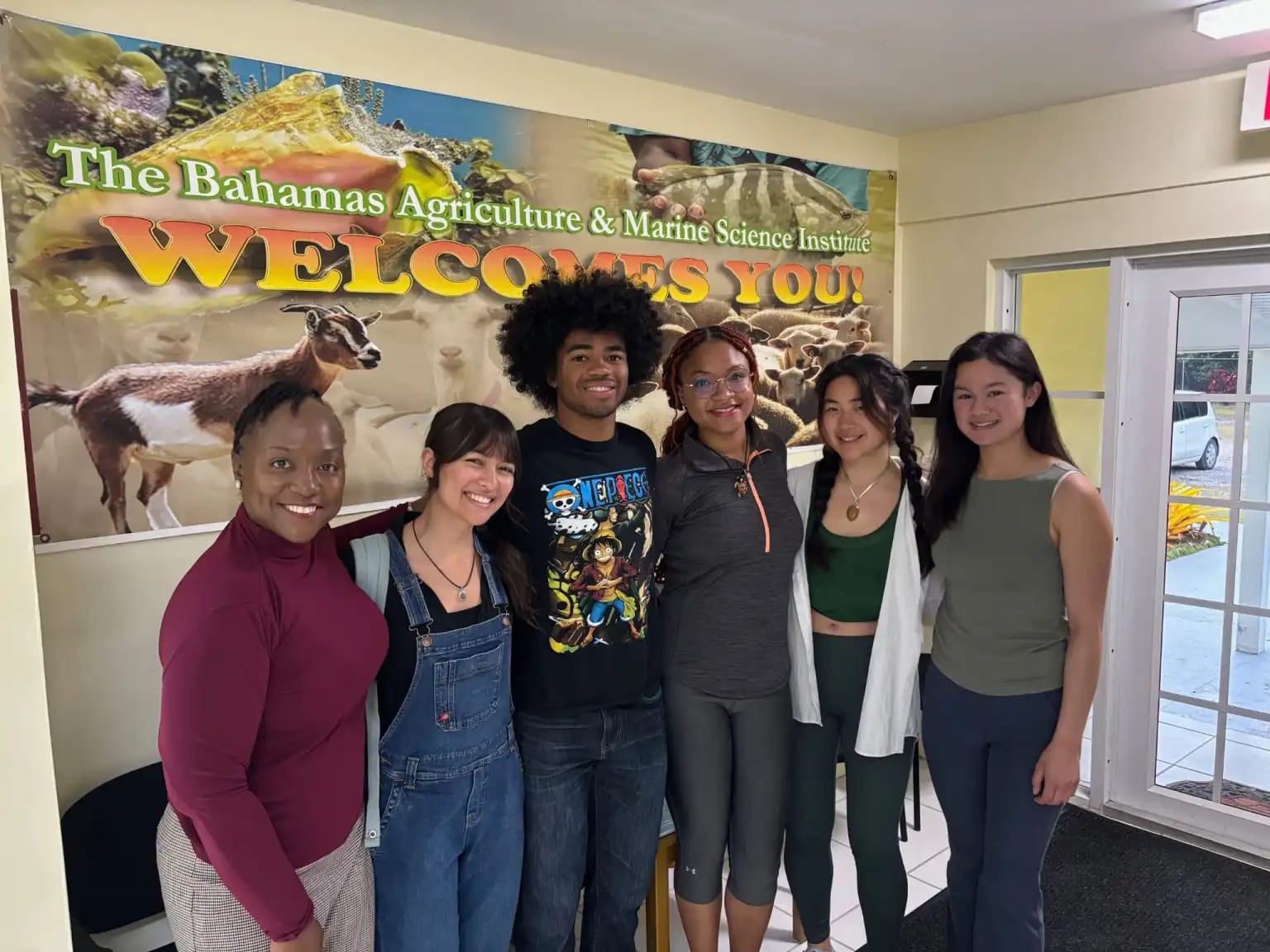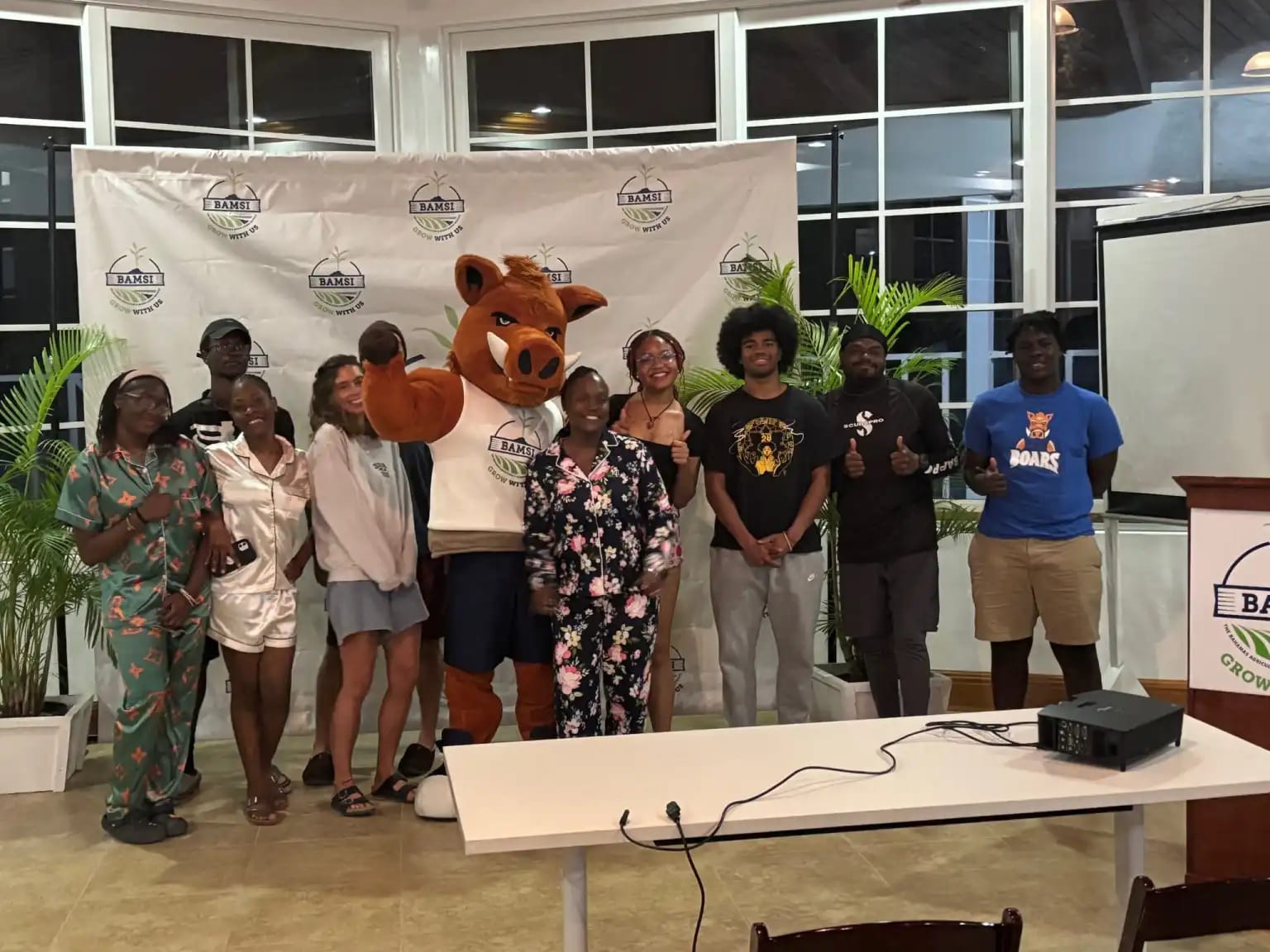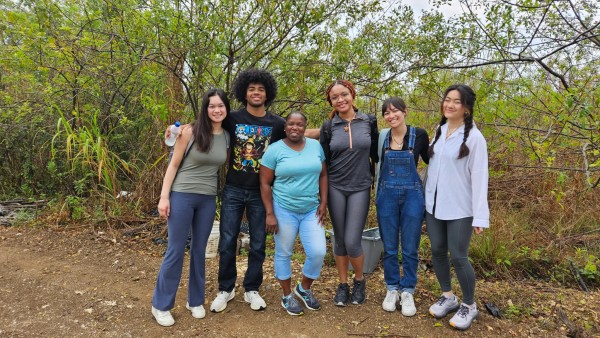Sustainable Agriculture Takes Root in Andros Through BAMSI-led Renewable Energy Project
In a strategic effort to explore renewable energy solutions within the agricultural sector, the Bahamas Agriculture and Marine Science Institute (BAMSI) recently collaborated with the U.S.-based Community and College Partners Program (C2P2) and Stanford University’s Chapter of Engineers for a Sustainable World to pilot a solar-powered irrigation system on a North Andros farm.
The visit marked an opportunity for preliminary engagement around future initiatives in environmental engineering and sustainable agriculture and formed part of a broader dialogue between the institutions.
The initiative, which took shape through an initial engagement led by BAMSI’s Office of the President, is exploring the potential for renewable technology to support local food production through the use of solar-operated pumps that will replace traditional gas-powered systems. The pumps should have the capacity to reduce operational costs for farmers, improve water-use efficiency and minimize environmental impacts.
“At BAMSI, we see this partnership as a vital opportunity to build capacity within our farming communities while advancing the use of renewable technology,” Dr. Raveenia Roberts-Hanna, President of BAMSI, said. “Collaborations like this allow us to not only transfer knowledge and practical skills, but also to foster innovation and resilience in the agricultural sector. Our goal is to empower farmers with sustainable tools that support productivity and protect our environment for generations to come.”
During the trip the team, which included students from both Stanford and BAMSI, conducted an assessment of Descendants Harvest, a farm operated by Shantell Riley in the North Andros community of BARC. The site visit allowed the group to evaluate the farm’s irrigation needs and environmental conditions. Based on the assessment, the team will develop blueprints for a customized system, then source local materials and engage a Bahamian specialist to build a prototype, which will be installed at a later date.
“I am excited that the FRESH (Future Resource Engineers for Sustainability and Health) Team at Stanford University, in conjunction with BAMSI, chose my farm for the pilot project,” Ms. Riley said. “I am hopeful that this innovative irrigation system will maintain the current output the farm requires for optimum production and will ultimately lead to the financial reduction of the farm’s operational costs.”
The FRESH team is contributing design insights and technical perspectives for the solar-powered system. Their visit to Andros provided them with a real-world context for their academic work, grounded in the realities of small island agriculture.
Like Ms. Riley, other Bahamian farmers who participate in the initiative will benefit from customized solar irrigation solutions designed to meet their specific needs, significantly reducing their reliance on fossil fuels while increasing efficiency and crop yields as well as reducing their operational costs, Michael Burns, founder and executive director of C2P2, said.
Reflecting on the impact of the collective undertaking, Mr. Burns highlighted that the collaboration will also enhance the farmers’ operational knowledge, helping them effectively manage and maintain the new systems.
“Transitioning to solar-powered irrigation is not only an investment in the future of sustainable agriculture but also a step towards reducing the carbon footprint,” he noted. “This joint effort highlights our commitment to sustainability and our dedication to supporting the local farming community. We are especially proud to connect with Dr. Hanna and the staff at BAMSI. Without their assistance and support, this project would not have begun.”
Moving forward, the Stanford engineering students will continue to liaise with BAMSI officials about proposed alternative energy solutions to power irrigation water pumps, with the aim to reduce production costs while lowering agriculture’s carbon footprint.
“The Stanford Chapter of Engineers for a Sustainable World is incredibly thankful for the opportunity to team up with BAMSI, C2P2, Ms. Riley, and the wider Andros community on this project,” Haleyn O’Brien Solis, a Stanford representative said. “As an organization dedicated to sustainable development through student and community alliances, we count ourselves lucky to be collaborating with individuals and organizations that value environmental health, technological innovation, and small yet scalable solutions. Our students have learned so much from the wisdom of the students, farmers, and community members we met throughout this process, and we look forward to scaling sustainable, solar-powered irrigation systems to every farmer on Andros Island. A huge thanks is due to BAMSI as well as C2P2 for their generosity in bringing our students to visit Andros Island, and the continued time and dedication of all of the stakeholders for their efforts in bringing about this project.”
The pilot effort is seen as the first step in building a more sustainable farming model for The Bahamas. With plans for future discussion, training and scaled implementation, BAMSI, C2P2 and Stanford University reaffirm their shared commitment to innovation, environmental responsibility and food security.
More Photo Highlights Below:

BAMSI President Dr. Raveenia Roberts-Hanna (far left, in purple)
welcomes students from Stanford University’s Chapter of Engineers for a Sustainable World to BAMSI’s campus.

Visiting students from Stanford University’s Department of Engineering joined BAMSI students for Pajama Forum 2025 during Boar Spirit Week. The Stanford team was in The Bahamas as part of a collaborative renewable energy project in support of sustainable agriculture. The initiative underscores BAMSI’s commitment to building meaningful academic linkages and giving students immersive learning experiences that extend beyond the classroom and into a global network of ideas, innovation and impact.



